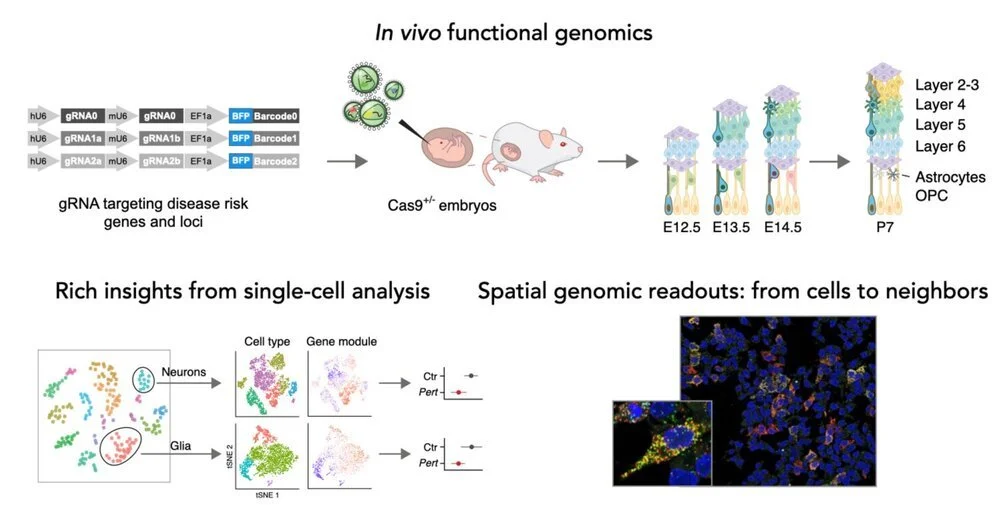Research
Approximately 1 in every 5 adults in the US will experience some form of serious mental illness in their lives.
While human genetic studies have uncovered numerous genes and loci associated with brain diseases and disorders, mapping their cellular mechanisms and identifying the relevant tissue and cell-type contexts remains a major challenge. To address this, we are developing in vivo genetic screens that enable massively parallel functional analysis of gene activity across diverse cell types during brain development and maturation (Jin et al. 2020, Zheng et al. 2024).
Brain disorders arise from a complex interplay of genetic and physiological factors. In autism spectrum disorder (ASD), for example, risk is shaped not only by many genes but also by biological sex: ASD is significantly more prevalent in males than females. We are investigating how sex-differential physiology and genetics impact brain function to understand how these distinct influences converge in the developing brain.
To tackle these questions, we combine in vivo CRISPR screening with single-cell multi-omics, spatial genomics, and chemical biology tools. Our work is deeply collaborative—both within our lab and across disciplines—and bridges cutting-edge neurotechnology with fundamental questions in brain development. This integration of tool-building and mechanistic insight positions us to uncover how diverse inputs shape the brain’s trajectory in health and disease.

